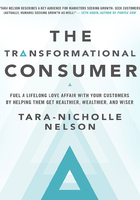
Persuasive Roles: Tool, Medium, Social Actor
At Stanford, B. J. Fogg also developed a framework for how computers and technology can be used to change how people act and think by serving three “persuasive roles” he deems the Functional Triad: tool, medium, and social actor. I take this idea even further: this framework suggests how companies in any sector, online or off and even including professional services, food, and consumer packaged goods companies, can think about inserting progress triggers into their customers’ journeys.
I take this idea even further: this framework suggests how companies in any sector, online or off and even including professional services, food, and consumer packaged goods companies, can think about inserting progress triggers into their customers’ journeys.
Tool. When your brand or company acts as a Tool, you increase your customers’ capability to do things in one of a few ways. It might make the behavior they want to do logistically faster, financially cheaper, or physically easier to do. It might lead them through a step-by-step process that eliminates complexity and reduces the number of brain cycles. Or it might perform calculations or measurements that spike your hero-customers’ level of motivation.
It might make the behavior they want to do logistically faster, financially cheaper, or physically easier to do. It might lead them through a step-by-step process that eliminates complexity and reduces the number of brain cycles. Or it might perform calculations or measurements that spike your hero-customers’ level of motivation.
Think about your bank’s app or your online investment dashboard. Tools. The software you’d use to organize your small company’s finances or the software your gym uses for you to register for classes? Tools. Think about the organic foods you buy and healthy snacks: also Tools. In fact, most athletic apparel, healthy food, and even things such as finance, fitness, and mindfulness apps that show you just how much money you’ve saved, how many miles you’ve cycled, and how many times you’ve meditated this year also fall within this Tool category.
Medium. As a Medium, your company provides experiences that help create transformation, by helping people learn cause-and-effect relationships, as MyFitnessPal does by helping people learn which foods and eating habits create weight gain and which do the reverse. According to Fogg, media also “provide[s] people with vicarious experiences that motivate” them (à la user success stories) and “help people rehearse a behavior.”
Inserting mindfulness into the loop of habitual or automatic decisions, with behavior tracking, logging, notifications, and emails, is one powerful strategy that Medium apps and businesses use to help people break habits.
Social actor. Transformer companies that play the role of social actor enable relationships that help create behavior change. Originally, Fogg wrote about social actors as computers that interacted in human-like, personal ways with their users. But that was all before social media even existed.
But that was all before social media even existed.
In the context of Transformational Consumers, social actor companies that connect customers with each other via such social features as friend feeds, messaging tools, leaderboards, hashtag campaigns, and discussion boards may all set the stage for your customers to experience positive behavior change. Companies also serve as behavior-changing social actors when they host live events such as classes, workshops, and clubs; via product ratings and reviews; and by hosting and creating social media conversations between customers with similar aspirations.
Transformer Beware: The Dangers of Trying to Motivate the Unmotivated
Professor Fogg says there are only three elements that must exist for a behavior to change: motivation, ability, and a trigger. It is extremely difficult, maybe even impossible, to motivate the unmotivated. It is a much more fruitful endeavor to find motivated people and make their desired changes easier (increase ability) or help activate them (put a hot trigger in their path).
In chapter 6, “Rethink Your Customer,” you’ll learn about how to map out the journeys of your already motivated customers, empowering your products and content to meet them where they are.
Consider this beloved quote of Transformational Consumers everywhere:
Until one is committed, there is hesitancy, the chance to draw back, always ineffectiveness. Concerning all acts of initiative (and creation), there is one elementary truth the ignorance of which kills countless ideas and splendid plans: that the moment one definitely commits oneself, then Providence moves too. All sorts of things occur to help one that would never otherwise have occurred. A whole stream of events issues from the decision, raising in one’s favor all manner of unforeseen incidents and meetings and material assistance, which no man could have dreamed would have come his way. Whatever you can do, or dream you can do, begin it. Boldness has genius, power, and magic in it. Begin it now.
—William H. Murray
Yes, Resistance is real. But I read this quote as paying homage to the cosmic counterforce to Resistance. When you become a Transformer company, you reposition your business as producer of the exact sorts of events, incidents, and material assistance your Transformational Consumer audience needs to encounter in order to make progress on their journey. You reposition and rethink the very things you sell, your every marketing message, fashioning them into the “sorts of things that occur” to help Transformational Consumers who have set out on their own quests for healthier, wealthier, wiser lives.